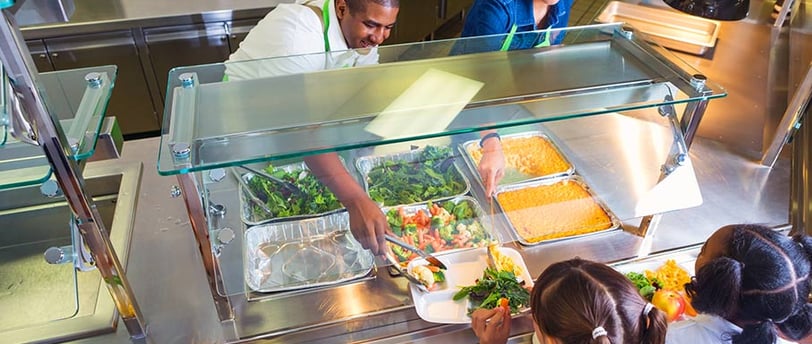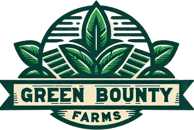Feeding the Future: How Schools are Incorporating Container Farms into STEM Education
Feeding the Future: How Schools are Incorporating Container Farms into STEM Education
Christopher Hebb
11/18/20245 min read


Introduction to Container Farms in Education
Container farms represent an innovative approach to modern agriculture, utilizing technology to create sustainable farming solutions within the confines of shipping containers. This method involves the integration of hydroponics, aquaponics, and aeroponics, allowing plants to be grown in a controlled environment without the need for traditional soil. The key to the operation of container farms lies in the utilization of advanced sensorial technology, automated systems, and software that monitor and optimize the conditions for plant growth, such as light, humidity, and nutrient levels.
The significance of container farms within the context of education is tremendous. As schools increasingly aim to incorporate sustainable practices into their curricula, container farms provide a tangible way to engage students in the principles of science, technology, engineering, and mathematics (STEM). By observing and participating in the farming process, students gain practical knowledge and insights into agricultural science, environmental impact, and food production systems.
Moreover, container farms facilitate hands-on learning experiences that foster critical thinking and problem-solving skills. Students can explore various aspects of agricultural technology, such as the use of sensors to gather data, the implementation of automated irrigation systems, and the study of plant biology and growth conditions. These experiences not only enhance students' understanding of STEM concepts but also inspire them to consider careers in related fields, from agricultural engineering to environmental science.
In essence, the incorporation of container farms into educational settings serves to promote sustainability while cultivating a sense of responsibility and innovation among students. By merging agriculture with technology, container farms not only revolutionize food production but also create valuable educational opportunities that prepare students for the challenges of the future.
Benefits of Integrating Container Farms into STEM Curriculum
The incorporation of container farms into the STEM curriculum presents a multitude of advantages that are beneficial for students and educators alike. One of the primary benefits is the enhancement of critical thinking and problem-solving skills. As students engage with the intricacies of agricultural science through container farming, they are encouraged to hypothesize, test, and analyze varying methods of growth and maintenance. This hands-on approach allows them to cultivate a deeper understanding of scientific principles while applying their knowledge in real-world scenarios.
Moreover, container farms foster teamwork and collaboration. Students often work in groups to manage these farms, which requires communication and cooperation to achieve common goals. This collaborative environment not only builds social skills but also emphasizes the importance of diverse perspectives when addressing challenges, such as optimizing plant growth or minimizing resources.
Beyond the cognitive and social benefits, integrating container farms into the curriculum significantly boosts environmental awareness. Schools can educate students about sustainability practices, water conservation, and the impacts of agriculture on the ecosystem. Understanding these concepts fosters a sense of responsibility among students regarding environmental stewardship, encouraging them to think critically about their consumption and food sources.
Additionally, the practical applications of STEM concepts through container farming extend to nutritional education. As students grow their own produce, they learn about healthy eating, food origins, and the benefits of incorporating fresh fruits and vegetables into their diets. This experiential learning serves to deepen their appreciation for food cultivation while reinforcing the relevance of scientific principles in everyday life.
In conclusion, the integration of container farms within the STEM curriculum not only promotes critical academic skills but also fosters teamwork, environmental consciousness, and a profound understanding of nutrition. These benefits illustrate how container farms can transform traditional education into a dynamic and impactful learning experience.
Real-World Examples of Schools Utilizing Container Farms
Across the nation, various educational institutions have effectively integrated container farms into their STEM curricula, showcasing innovative approaches to teaching and learning. One notable example is the partnership between a high school in urban Los Angeles and a local hydroponics company. This collaboration allowed students to engage in hands-on projects where they learned the science of growing food in a controlled environment. Through this initiative, students not only grasped important concepts in biology and chemistry but also gained insights into sustainable agricultural practices. Feedback from teachers highlighted enhanced student engagement and improved understanding of practical applications of science.
Similarly, a rural school in Nebraska adopted container farming as a part of its agricultural science program. The school transformed a shipping container into a state-of-the-art growing facility that allowed students to experiment with various crops and growing techniques. In addition to cultivating an understanding of plant biology and the technology involved, students also faced challenges related to climate control and pest management. These real-world problems fostered critical thinking and collaborative problem-solving skills, as students worked in teams to develop solutions. This hands-on experience proved invaluable, helping students connect theoretical knowledge with practical applications.
Furthermore, a community college in the Midwest established a container farm that not only serves educational purposes but also supports local food initiatives. The college partnered with local nonprofit organizations to provide fresh produce to food banks while allowing students to gain experience in agriculture and food systems. This initiative has significantly contributed to community engagement, providing students with a sense of purpose and the importance of social responsibility. Overall, these examples illustrate the diverse ways container farms can enrich STEM education, preparing students for future challenges while fostering an appreciation for sustainable practices.
Future Trends and Innovations in Container Farming Education
As educational institutions increasingly gravitate toward innovative practices, the incorporation of container farms within STEM curricula stands at the forefront of agricultural education. The utilization of container farming not only enriches students' understanding of agriculture but also integrates essential skills in science, technology, engineering, and mathematics. Looking ahead, several trends and innovations are likely to shape the future of container farming in educational settings.
One promising trend is the integration of advanced technologies such as artificial intelligence (AI) and the Internet of Things (IoT). These technologies can optimize the growing conditions in container farms, allowing students to engage in hands-on experiments that provide real-time feedback on growth variables. The ability to monitor and adjust lighting, temperature, and nutrient levels remotely empowers students to understand both the theoretical and practical aspects of farming.
In addition to technological advancements, innovative teaching methodologies such as project-based learning are gaining traction. This approach encourages students to work collaboratively on farming projects, fostering not only agricultural literacy but also teamwork, problem-solving, and critical thinking skills. By addressing real-world challenges, such as sustainable food production and resource management, educators can underline the importance of container farming in combating food insecurity.
Collaboration between educational institutions and the agricultural industry is another vital component of future container farming initiatives. Partnerships can provide schools with access to resources, expertise, and mentorship opportunities, ultimately enriching the educational experience. Additionally, policymakers are likely to play a significant role in expanding funding for these initiatives, as educational bodies increasingly recognize the value of practical learning experiences.
As container farming continues to evolve, educators must prepare for an educational landscape that dynamically intertwines STEM fields with agricultural practices. By staying abreast of emerging trends and collaborating with industry partners, schools can cultivate future generations equipped with the skills necessary to innovate within the agricultural sector.
© 2025. All rights reserved.







